‘Europe without Angela Merkel is possible’
Many EU member states did not agree with her refugee policies, others criticized her austerity stance. Brussels now regards Angela Merkel’s step-by-step withdrawal as a chance for new beginnings, says DW’s Bernd Riegert.
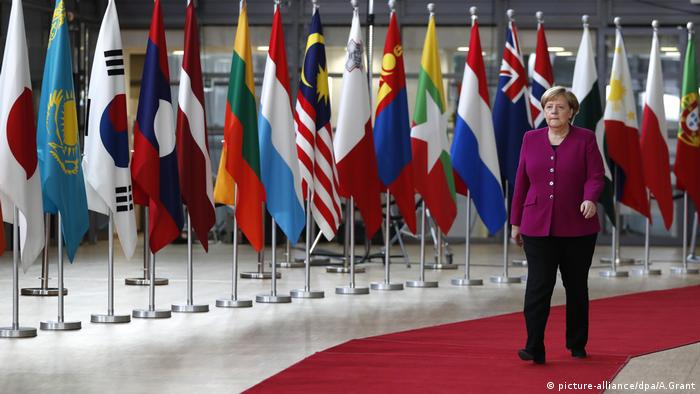
For many observers in Brussels, the twilight of Angela Merkel’s chancellorship in Berlin, which has now begun with her decision not to run again for CDU leader, comes as no surprise. After the failed EU refugee summit, political news portal Politico wrote off Angela Merkel as early as this summer. The chancellor’s assertiveness had suffered badly because of the internal quarrels in her grand coalition of CDU, CSU and SPD. “How Merkel divides the EU,” Politico wrote back then.
That was even before the state elections in Bavaria and Hesse and their severe losses for the grand coalition. But even then, it was clear that Merkel’s 2015 refugee policy course had facilitated the rise of populists in many EU countries. She was unable to enforce the solidarity she demanded on migration policies, nor a binding distribution of refugees. Only recently has she advocated closing off the EU’s external borders while setting up asylum centers in North Africa.
Read more: Opinion: Finally Angela Merkel shows leadership
Some ‘will be pleased’
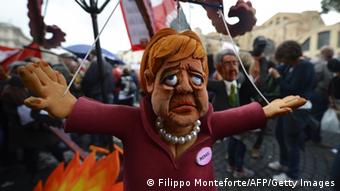 Long before Italy’s current populist government was at odds with the chancellor, there were protests against her EU policies
Long before Italy’s current populist government was at odds with the chancellor, there were protests against her EU policies
Many in Poland, Hungary and Italy will hardly shed a tear for Merkel once she gives up the chancellorship. Many politicians in states bogged down by financial crises consider Merkel’s role in overcoming the financial and euro crisis in Greece, Cyprus, Portugal, Spain, Ireland and now Italy to be wrong, calling it too rigid, too austerity-oriented.
“Of course, Europe without Angela Merkel is possible,” says Janis Emmanouilidis, head of the European Policy Center think tank. “If you have a leading role like Germany and its chancellor do, then of course there will be countries and governments who are less satisfied with what Germany does,” he told DW. As such, he explained, there will be people in Eastern and Southern Europe who will be pleased when the chancellor is gone.
Merkel underestimated the refugee issue, Matteo Salvini, Italy’s radical right-wing interior minister, told DW in an interview in September. With an eye on Sunday’s election defeat in Hesse, Salvini said the result was a “blow with a hammer” for Merkel.
 Embittered after austerity gripped the country, Greek protesters didn’t pull punches on their feelings toward Merkel
Embittered after austerity gripped the country, Greek protesters didn’t pull punches on their feelings toward Merkel
Merkel’s stability ‘a great asset’
Most EU states value her, according to Emmanouilidis — not least because she is the longest-serving head of government in the bloc, and simply has the most experience in Europe. People appreciated stability in Berlin, he argues. “In times of uncertainty, stability is a great asset.”
Many politicians at the EU’s headquarters in Brussels will have to get used to the fact that “Mutti” (mommy), as Merkel is fondly called by many in her party and the coalition government, might be leaving in the foreseeable future, says Emmanouilidis. She’s been in power for 13 years, so it is difficult to imagine politics without her, but her succession will be arranged, he adds. “There will be the first day after Merkel, a time after Merkel.”
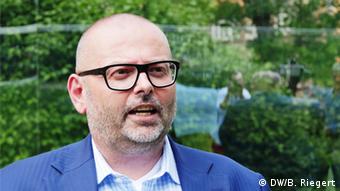 Policy expert Emmanouilidis: It’s hard to imagine Europe without Merkel, but an orderly transition will be arranged
Policy expert Emmanouilidis: It’s hard to imagine Europe without Merkel, but an orderly transition will be arranged
Decisions shelved
For months now, decisions on migration, Brexit or reform of the eurozone at the EU level have been postponed — due partly to the hesitant German chancellor who was too busy with the coalition at home to make time for the EU’s urgent crises. By announcing that she will give up the party chair and not run again for chancellor in 2021, some observers see her as a lame duck.
Longtime German finance minister and current Bundestag President Wolfgang Schäuble, however, disputed that characterization in a DW interview, saying that “her position is constitutionally strong” and that she’s likely to stay put as chancellor for years to come.
Germany, the largest and financially strongest member state, will of course continue to shape the EU regardless. EU diplomats do not expect progress on negotiations on the EU’s common budget before the European elections in May 2019. Günther Oettinger, whom Merkel sent to Brussels as EU commissioner, is responsible for the budget.
It also remains unclear what Merkel’s retreat in installments means for Manfred Weber, a member of the CSU who hopes to be nominated as the top candidate of the European People’s Party next week, with an eye on the post of president of the EU Commission. Germany’s head of government actually has a deciding voice in the matter.
 Macron and his ‘good friend’: With her departure on the horizon, the French president may seize the chance to stake out a position as ‘the new Merkel’
Macron and his ‘good friend’: With her departure on the horizon, the French president may seize the chance to stake out a position as ‘the new Merkel’
Macron needs a new partner
French President Emmanuel Macron is unlikely to be particularly pleased by Merkel’s possible departure from the European stage. With the help of his “good friend Angela” he planned to advance his reform agenda for the monetary union. There is bound to be a period of uncertainty, says EU expert Emmanouilidis — not what Macron was hoping for.
On the other hand, he adds, the chancellor and the government have not responded to Macron’s proposals anyway. “The question is how this will develop after Merkel’s departure,” says the think tank researcher. It could also be an opportunity for Emmanuel Macron if Merkel leaves the driver’s seat.
The chancellor today also put an end to any speculation in Brussels that she might be aiming for a position in the European Union’s top management. Observers argued she could move to Brussels next year, either as president of the EU Commission or as president of the European Council. Both posts are up for grabs again in about a year.

Annegret Kramp-Karrenbauer, CDU
Kramp-Karrenbauer, also known as AKK, was Merkel’s choice to become general secretary of the CDU in 2018. She is reputedly Merkel’s pick as a successor as party leader. AKK headed a CDU-SPD coalition as state premier in the small southwestern state of Saarland before becoming the CDU’s general secretary. She is considered a moderate who would continue Merkel’s centrist policies.
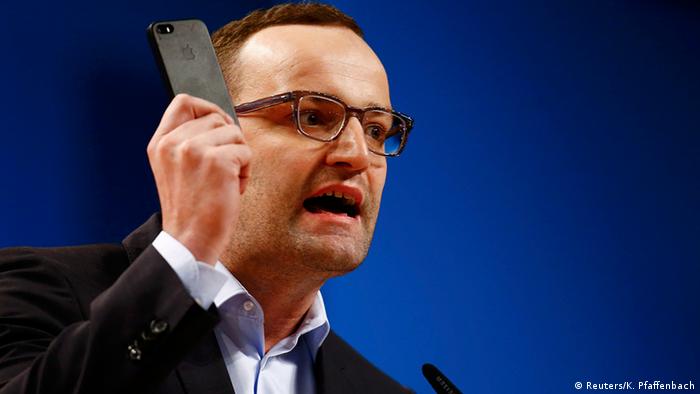
Jens Spahn, CDU
The 38-year-old is the youngest and most overtly determined Merkel usurper. He entered the Bundestag in 2002 and became Germany’s health minister in 2018. Spahn, who is openly gay, is popular in the CDU’s conservative wing. He opposes limited dual citizenship for young foreigners, criticized attempts to loosen laws on advertising abortions and called for banning the Burqa in public.
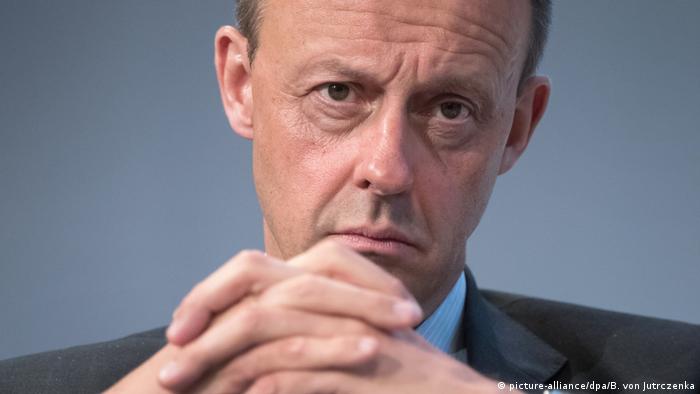
Friedrich Merz, CDU
The former leader of the CDU/CSU grouping in the Bundestag has been out of frontline politics since leaving the Bundestag in 2009. But the 62-year-old announced his intention to replace Merkel within hours of the news that she would be stepping down. Merz reportedly fell out with Merkel after she replaced him as CDU/CSU group leader in 2002. He has been a chairman at Blackrock since 2016.

Armin Laschet, CDU
Laschet became state premier of North Rhine-Westphalia in 2017. His win marked a major defeat for Social Democrats in Germany’s 18 million-strong “coal” state. The Catholic and former journalist, 57, has been branded by his critics as “too nice for politics.” He is also one of the five deputies in the national CDU executive.
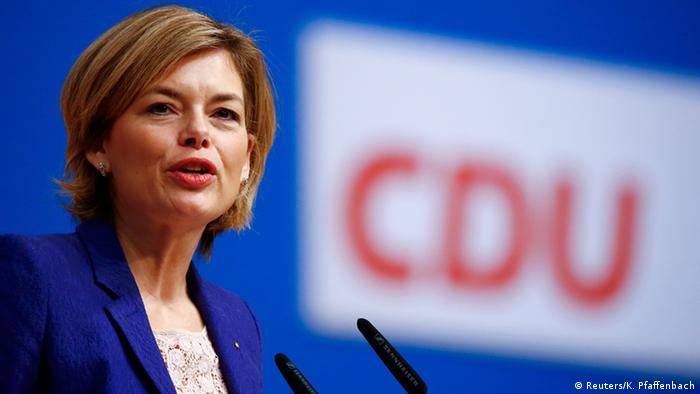
Julia Klöckner, CDU
Klöckner became agriculture minister in 2018 and has been CDU chief in the western state of Rhineland-Palatinate since 2011. In 1995, before entering politics, she became Germany’s “Wine Queen.” Like Spahn, she belongs to the CDU’s conservative wing. She raised eyebrows in 2016 when she proposed an alternative plan to Merkel’s refugee policy.
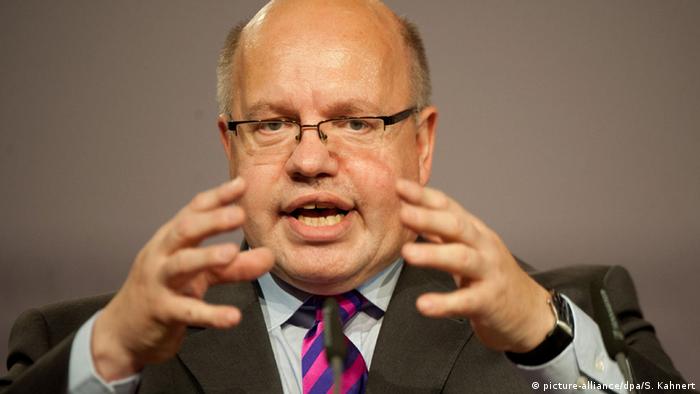
Peter Altmaier, CDU
Altmeier, known as “Merkel’s bodyguard,” has supported the chancellor’s centrist policy platform on multiple fronts. Originally from Saarland, Altmaier first worked for the European Union before entering the Bundestag in 1994. The former environment minister turned economy minister is renowned for his kitchen diplomacy and being a stickler for policy detail.
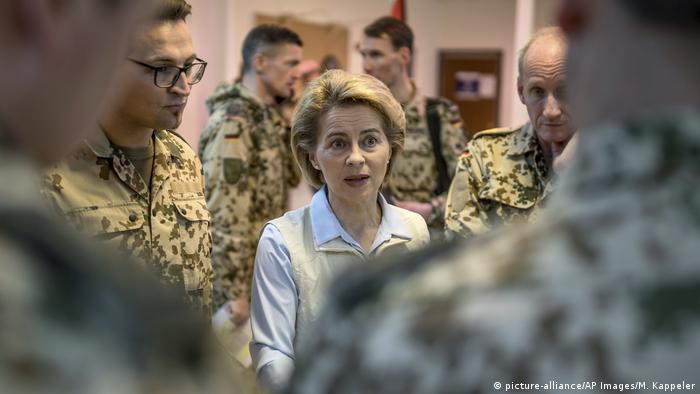
Ursula von der Leyen, CDU
Von der Leyen became defense minister in 2013 after serving a stint as labor minister. Despite her reform efforts, defense spending remains stubbornly low and the military continues to suffer from widespread equipment shortages. Von der Leyen, who studied in the United States and Britain, supports a larger role for Germany abroad and improving links between national armies in the European Union.
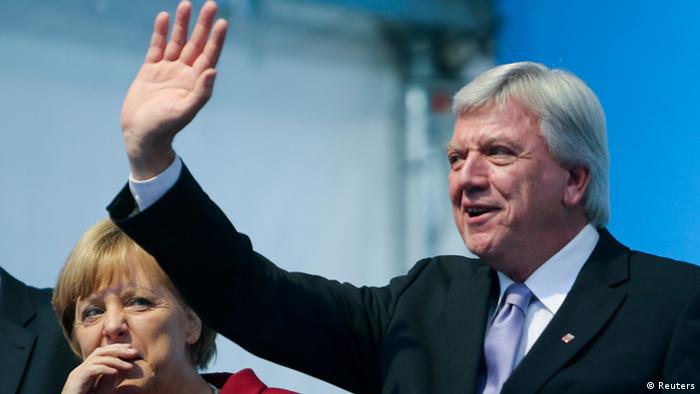
Volker Bouffier, CDU
Volker Bouffier has been the premier of the central state of Hesse since 2010. He formerly served as the state’s interior minister and has twice “won” Big Brother awards from German data privacy advocates for propagating closer surveillance methods by police. The 66-year-old currently heads a CDU-Greens state government in Hesse and is a deputy chairperson in the national CDU executive.
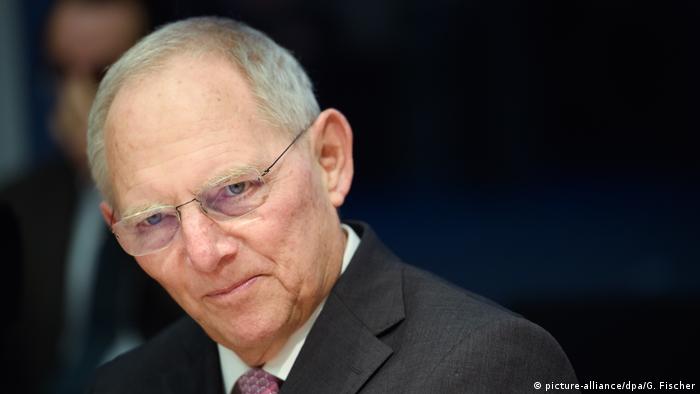
Wolfgang Schäuble, CDU
Schäuble is one of the CDU’s most experienced politicians. He is well-known throughout Europe for his time as finance minister from 2009 to 2017, when he took a hard line against the Greek government. But Schäuble’s decision to give up a senior ministerial role to become president of the German parliament suggests the 75-year-old has already entered the twilight of his political career.
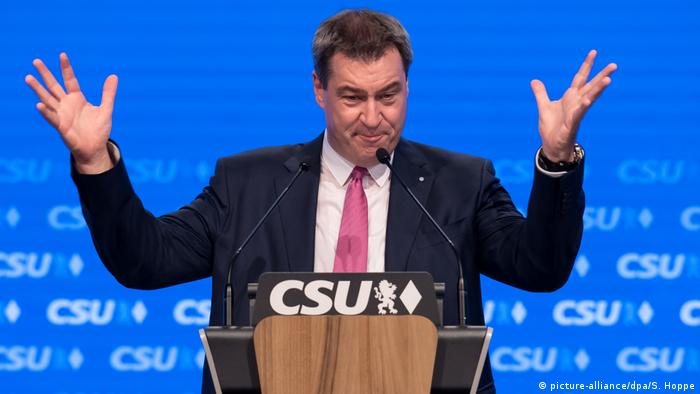
Markus Söder, CSU
Söder is Bavaria’s state premier and a member of the CDU’s sister party, the CSU. He is therefore ineligible to replace Merkel as CDU head. But Söder, who became premier earlier this year, could become chancellor if the CDU and CSU together nominate him as their combined candidate for the 2021 election. He has been a vocal critic of Merkel’s refugee policy and Greece’s membership of the euro.